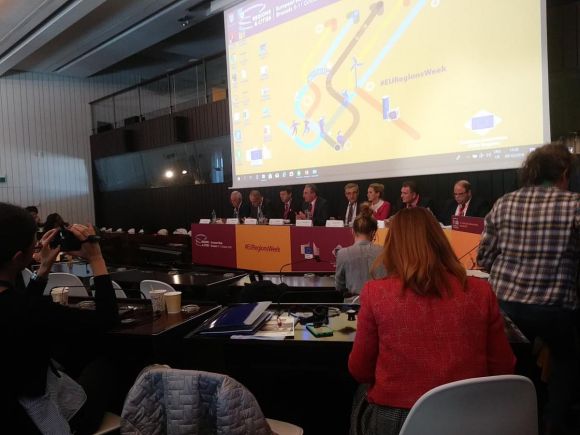
We all know how it looks like. You take the courses in your country, do your best at school, sign up for additional classes and turns out that... there is no job for you. Of course, you are well-qualified and you did well at your university.
Sadly, in your region, there is only a slight chance that someone will shake your hand and give you a decent payment. Seems like you need to go abroad. But maybe for a month, just to see how it is. Later on, maybe for six months. You make some connections, you meet some friends and you end up as a potential ‘nouveau-riche’ foreigner, scrolling through your family photos on Facebook. Does it have to look like that?
Not really. At least the European Commission hopes so. This week, as part of the Committee of Regions, the decision–makers have met to come up with a solution. It wasn’t easy, but here are some propositions and ideas worth noting for the future.
“Young people need some concrete strategies to stay in the country”
That statement, made by Csaba Borboly, The President of Harghita County Council, seems decent and trustworthy. But what does it mean?
It's all about cooperation. Young people must be informed about new initiatives on the market. Some of them are just unaware of their region’s possibilities and workplaces. Therefore, the best solution would be to create an innovative platform for communication – between employers and employees. It’s not only about entrepreneurs! The key to good cooperation is to be in touch with the local stakeholders, who are – because of subsidiarity’s principle – in charge of current cohesion options.
“There is no acceptance for language barrier”
Sometimes young people are just incredible in their work, but they have issues with different languages. Due to this, it happens that they are not hired while the recruitment process.
During the ‘Brain Drain’ conference, speakers had been wondering about regulations that put the vocational skills higher than knowing an English grammar. From next year, there will be more workplaces for workers that use only their mother tongues. Of course, there will be some language courses provided, in order to avoid inclusion, but being a native speaker in your work will be properly respected.
“Regions must be more attractive!”
But it’s not only about hiring, as the Spanish politician, Jose Ignacio Ceniceros Gonzales states. There needs to be a method of improving tools and identifying talents of young people entering the market. One of the most important things is to be motivated! There is no reason to stay in the region that is absolutely uncompetitive with others, or even with different countries. To keep the place of living attractive, there must be a good-working infrastructure, such as universities, training institutes, places of seminars, newly created workplaces. And everyone should work hand in hand – local entrepreneurs, municipality, workers and students!
“You can always leave.. for a bit”
Obviously, young people can travel and left their country behind – it’s not the cohesion policy’s aim to keep them closed in their regions. Thanks to Commissioner of Education, Culture, Youth and Sport, Tibor Navracsics, there is a strategy to strengthen and even double the Erasmus+ Program offer. From 2020 the popular learning platform would open more options for people from less-developed countries, with the lower amount of mobility actions. The idea promotes people’s free movement around Europe and will focus on educating volunteers and encouraging them to come back to their countries and pass that knowledge further.
“Universities are involved”
Navracsics says that the quality of education can make a region attractive. Keeping this in mind, universities will also be reformed and more available for students from less-developed regions. His words were: "We don’t want exclusive clubs, so there would be pressure on uni-workers’ mobility between their workplaces (which will be available because of the new grants and fellowships). Universities should also go along with the regional entrepreneurs to build together the local working infrastructure."
Next year seems to bring a lot of opportunities for self and regional development. Now, we can only hope that promises and ideas will be fulfilled. But, after the conference, it’s enough to say that there is a wind of potential changes! Maybe that discussion will be a beginning of giving the EU citizens’ the return ticket?
Written by: Magdalena Płotała
Edited by: Bruna Tomsic



